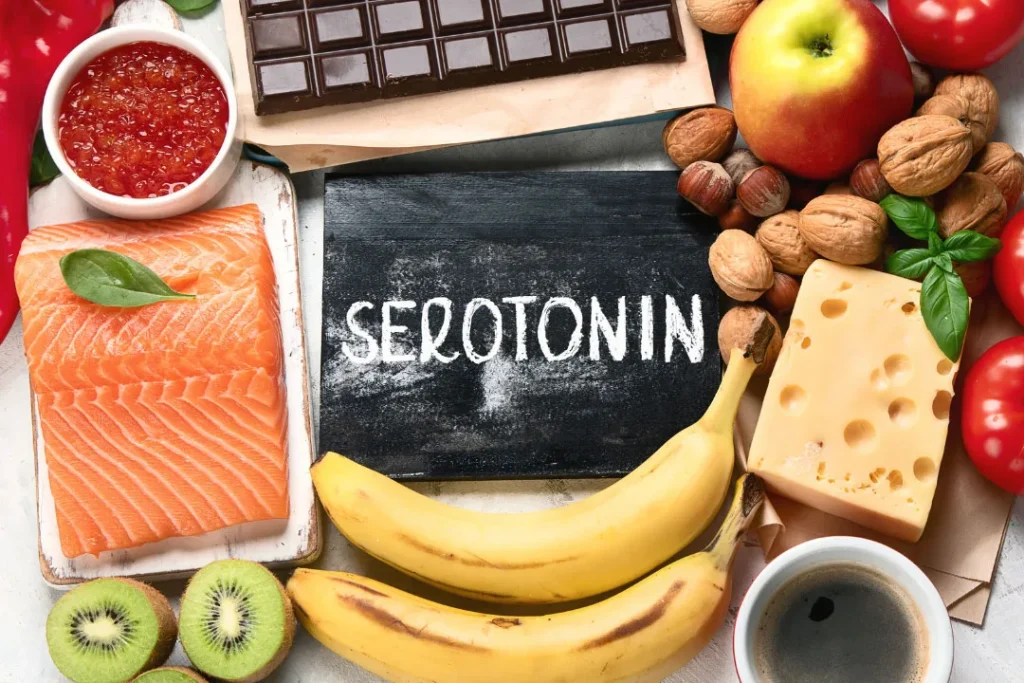Nutrition for Memory Improvement: Implementing Dietary Changes to Sharpen Cognitive Processing
In today’s fast-paced world, enhancing cognitive function and memory has gained significant importance. In fact, a number of supplements and products have been released in recent years with the sole focus of improving cognition, memory, and other neurological benefits. Rhodiola, known for its potential cognitive advantages, is one component that has gained recent popularity both in research and in usage for cognitive improvement supplements. Research has shown that nutrients such as adaptogens, antioxidants, omega-3 fatty acids, vitamins, and minerals play a crucial role in supporting cognitive well-being.
A Mediterranean-style diet, abundant in a delightful array of fruits, vegetables, whole grains, lean proteins, and healthy fats, presents a bounty of cognitive advantages. The incorporation of omega-3 fatty acids, sourced from delectable options like fatty fish, flaxseeds, and walnuts, becomes a nourishing elixir for brain health. Moreover, the inclusion of curcumin, a star player in turmeric, and the embrace of the invigorating catechins found in green tea contribute to the symphony of cognitive function support.
However, a holistic approach is key. Exercise, sleep, stress management, and cognitive challenges work synergistically for cognitive vitality. This article navigates the realm of memory enhancement through nutrition, emphasizing rhodiola’s role and introducing Brilliance as a potential tool for cognitive improvement. By making informed dietary choices and adopting a well-rounded lifestyle, individuals can pave the way for sharper cognitive processing and improved memory. This article will also present a premier supplement to add to a diet based on nutrition for memory.
You May Also Like:
The Best Supplements for Brain Injury: 5 Top Brands Reviewed
The Best Mushroom Supplements for Memory: 5 Top Brands Reviewed
Nutrition for Memory Improvement: Implementing Dietary Changes to Sharpen Cognitive Processing is an original (NootropicsPlanet) article.
Nutrition for memory improvement:
The cognitive puzzle
Understanding memory enhancement requires delving into the intricacies of the human brain’s operations. Memory involves a web of interconnected processes spanning encoding, storage, and retrieval. While genetics contribute somewhat to how an individual’s cognitive processes develop and age, lifestyle factors like diet wield a profound impact on cognitive well-being. Emerging research proposes that nutrition might hold the key to optimizing memory and cognitive functions.
Genetics plays a role in cognitive function, but lifestyle factors, particularly diet, can also wield significant influence on how the brain performs. Recent studies have illuminated a promising prospect: nutrition’s role in memory enhancement and cognitive processing. Antioxidants, abundant in fruits and vegetables, safeguard against oxidative stress, which is implicated in cognitive decline. Omega-3 fatty acids, prevalent in fatty fish and nuts, enhance neuronal communication and synaptic plasticity vital for memory.
Research suggests that dietary changes can impact cognitive health, potentially mitigating age-related cognitive decline and enhancing memory capabilities. Recognizing the intricate interplay between nutrition and cognitive function underscores the potential of informed dietary choices to optimize memory enhancement and elevate cognitive processing. By consciously selecting nutrient-rich foods, individuals may harness nutrition’s power to unlock cognitive potential.
Nutrition for memory improvement:
The nutritional arsenal
The exploration of nutrition’s potential for memory enhancement revolves around harnessing the power of specific nutrients. Among these, antioxidants, omega-3 fatty acids, vitamins, and minerals emerge as key contributors to cognitive improvement. Antioxidants, found abundantly in fruits and vegetables, counteract oxidative stress by neutralizing harmful free radicals. This preservation of brain cell integrity aids in enhancing cognitive resilience.
Omega-3 fatty acids, prominent in fatty fish and plant-based sources like flaxseeds, offer structural support to neuronal membranes, which are crucial for efficient synaptic communication. Additionally, they possess anti-inflammatory properties that protect cognitive processes from immune-related disruptions. Vitamins such as B6, B9, and B12, along with minerals like zinc and magnesium, play vital roles in neurotransmitter regulation and synthesis, further supporting cognitive function.
Together, these nutrients synergistically combat oxidative stress, reduce inflammation, and enhance neuronal communication, creating an environment conducive to memory improvement. This intricate interplay underscores the potential of nutrition as a tool for cognitive enhancement. By incorporating nutrient-rich foods into our diets, we lay the foundation for cognitive vitality, optimizing memory and cognitive processing.

Nutrition for memory improvement:
Rhodiola, a botanical gem
An intriguing contender in the realm of memory-enhancing nutrition is rhodiola (Rhodiola rosea), a revered perennial herb known for its adaptogenic properties. Adaptogens, natural substances aiding the body’s stress adaptation, have thrust rhodiola into the limelight for its potential cognitive advantages. This botanical marvel is thought to enhance focus, mental clarity, and memory function. Leveraging rhodiola’s potential, myPEAK offers Brilliance, a product that holds promise for individuals seeking cognitive enhancement.
Rhodiola’s multifaceted cognitive impact includes improved focus, potentially enabling better attention allocation and mental clarity for tackling cognitive challenges. Notably, its reputed memory-enhancing effects stem from optimizing neural pathways, potentially aiding information processing and retention. This synergy between scientific understanding and botanical wisdom finds embodiment in Brilliance, which harnesses rhodiola’s potential to heighten memory performance, mental acuity, and cognitive vitality.
Brilliance underscores the fusion of rigorous scientific exploration and natural elements. As the pursuit of sharper cognitive function gains traction, the incorporation of rhodiola-based products like Brilliance offers a pathway for individuals aspiring to amplify their cognitive capabilities. Embracing rhodiola’s potential, individuals embark on a journey of cognitive empowerment with products like Brilliance leading the charge, melding nature’s wonders with scientific advancements to augment cognitive prowess.
Nutrition for memory improvement:
The science behind rhodiola
Delving into rhodiola’s cognitive effects uncovers the intricate realm of neurochemistry. Research suggests that rhodiola’s influence on neurotransmitters like dopamine and serotonin could enhance mood and cognitive function. Its anti-fatigue and anti-stress properties may indirectly contribute to improved memory retention and recall. Rhodiola’s modulation of neurotransmitters, such as dopamine and serotonin, holds promise for enhancing mood and cognitive performance by fostering a harmonious balance.
Moreover, its anti-fatigue attributes could indirectly bolster cognitive vitality, effectively conserving cognitive resources for heightened memory function. By mitigating stress, rhodiola indirectly supports memory enhancement, creating a more propitious environment for optimal information retention. Rhodiola’s significance within neurochemistry unveils a potential ally in the journey of cognitive enhancement, motivating further exploration of memory improvement through the intricate pathways of neurochemical interactions.

Nutrition for memory improvement:
Implementing dietary changes
Efforts to enhance memory through nutrition demand mindful dietary choices. A Mediterranean-style diet, abundant in fruits, vegetables, whole grains, lean proteins, and healthy fats, offers cognitive advantages. Omega-3 fatty acids from sources like fatty fish, flaxseeds, and walnuts foster brain health by augmenting neuronal communication.
The inclusion of curcumin, an active compound found in turmeric, introduces a neuroprotective dimension through its potent anti-inflammatory and antioxidant properties. Additionally, the infusion of green tea catechins, also prevalent in dark chocolate and berries, adds another layer of cognitive nourishment, delivering both antioxidants and anti-inflammatory benefits.
Collectively, this holistic approach to memory enhancement underscores the pivotal role of a balanced diet. By integrating nutrient-rich components like omega-3 fatty acids, curcumin, and green tea catechins, individuals may potentially cultivate cognitive vitality, thereby enhancing memory and optimizing overall cognitive performance.
Nutrition for memory improvement:
Embracing a holistic approach
While nutrition for memory improvement is a promising avenue, it’s essential to view cognitive health through a holistic lens. Physical exercise, adequate sleep, stress management, and engaging in cognitive challenges such as puzzles and acquiring new skills synergistically support memory enhancement. These lifestyle elements act as the bedrock of cognitive well-being, promoting neural plasticity and resilience. Adequate sleep allows for memory consolidation, while regular physical activity enhances blood flow to the brain, facilitating optimal cognitive function.
Stress management techniques, from mindfulness to relaxation practices, not only alleviate cognitive strain but also create a favorable environment for memory formation. The incorporation of cognitive challenges, such as learning a musical instrument or a new language, stimulates neural pathways, fostering mental agility and memory retention. When combined with dietary modifications, these holistic lifestyle factors contribute to a comprehensive approach, ultimately nurturing cognitive vitality from multiple angles.

Nutrition for memory improvement:
myPEAK Brilliance, a premier supplement source
When it comes to adding supplements to your daily routine, picking top-notch products is a game-changer. Opting for trusted and well-crafted supplements means your path to better health is backed by quality and maximum benefits. myPEAK’s Brilliance stands as a testament to the commitment to quality and efficacy. Harnessing the potential of rhodiola, Brilliance offers a standardized extract rich in bioactive compounds. This carefully crafted supplement aims to amplify memory performance, increase mental sharpness, and bolster cognitive vitality.
With additional brain-boosting compounds such as ginkgo biloba, bacopa, and huperzine A, myPEAK’s Brilliance provides users with a supplement that is powerfully packed to help improve brain performance. The partnership between scientific understanding and botanical wisdom is exemplified in Brilliance’s formulation, making it the optimum supplement for improving cognitive function and memory.
Nutrition for memory improvement:
Final thoughts
Improving cognitive processing and memory function is a worthwhile journey. The connection between nutrition, cognitive health, and memory enhancement underscores the potential of lifestyle tweaks. Enter the fascinating botanical wonder, rhodiola, with its unique benefits. By blending science-backed dietary adjustments and holistic lifestyle shifts, we can empower ourselves to boost cognitive processing and embrace a well-rounded cognitive vitality. If you are looking for a way to holistically boost your cognitive function and memory through nutrition, you may wish to consider adding a high-quality supplement containing rhodiola.

Further Reading:
Frontiers in Pharmacology: Rhodiola rosea L. Improves Learning and Memory Function: Preclinical Evidence and Possible Mechanisms
International Journal of Molecular Sciences: In Pursuit of Healthy Aging: Effects of Nutrition on Brain Function
Journal of Sport and Health Science. Effects of Rhodiola rosea supplementation on mental performance, physical capacity, and oxidative stress biomarkers in healthy men
ScienceDirect: Nutrition for the ageing brain: Towards evidence for an optimal diet Author links open overlay panel
Important Note: The information contained in this article is for general informational purposes only, and should not be construed as health or medical advice, nor is it intended to diagnose, prevent, treat, or cure any disease or health condition. Before embarking on any diet, fitness regimen, or program of nutritional supplementation, it is advisable to consult your healthcare professional in order to determine its safety and probable efficacy in terms of your individual state of health.
Regarding Nutritional Supplements Or Other Non-Prescription Health Products: If any nutritional supplements or other non-prescription health products are mentioned in the foregoing article, any claims or statements made about them have not been evaluated by the U.S. Food and Drug Administration, and such nutritional supplements or other health products are not intended to diagnose, treat, cure, or prevent any disease.


